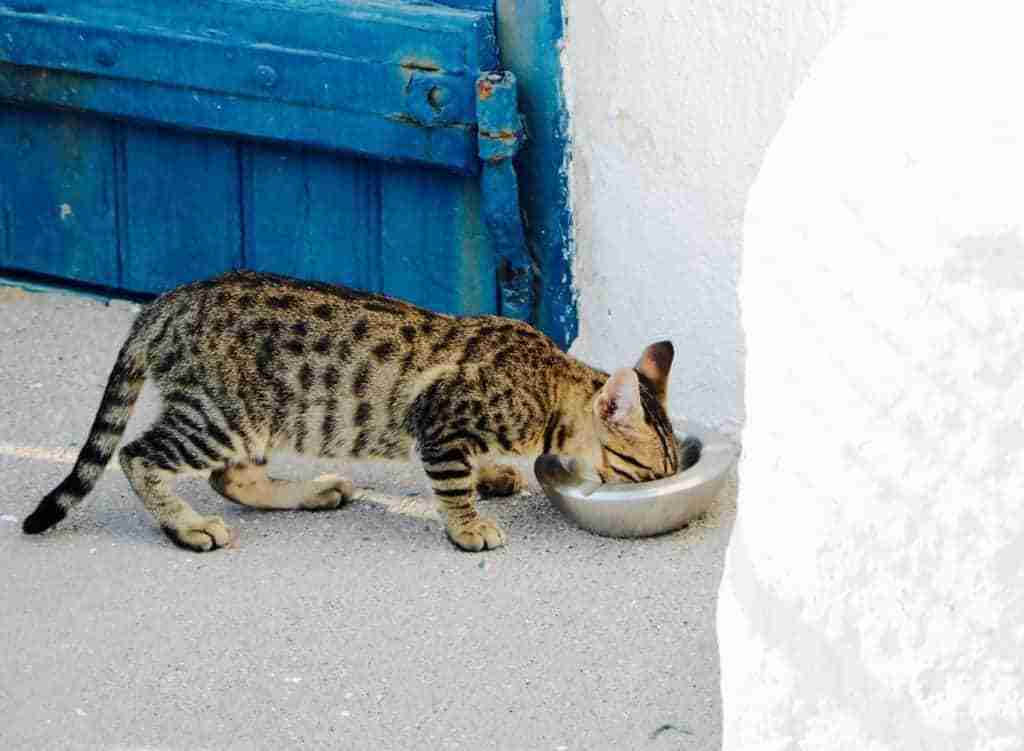Why do cats go off their food? The reasons are diverse but usually, come down to health issues, problems with the food or the way it is presented, and age. We will investigate these issues in more depth and hopefully help you identify why your cat is not eating well anymore.
Once we have investigated the main issues we will give you some advice on how serious your cat’s problem might be and some tactics you can implement to get your cat eating properly again!
Read on to learn more…
Why Do Cats Go Off Their Food?
We indicated that the main reasons cats go off their food are usually down to a health issue they have picked up, a problem with the food or the way you provide it, or just the sheer age of your cat.
Let’s look at these in more detail starting with health issues. These are ordered in likelihood and severity for a bit more of a feel of how serious or not things may be! We will then hit on the food-related issues and finely, age…
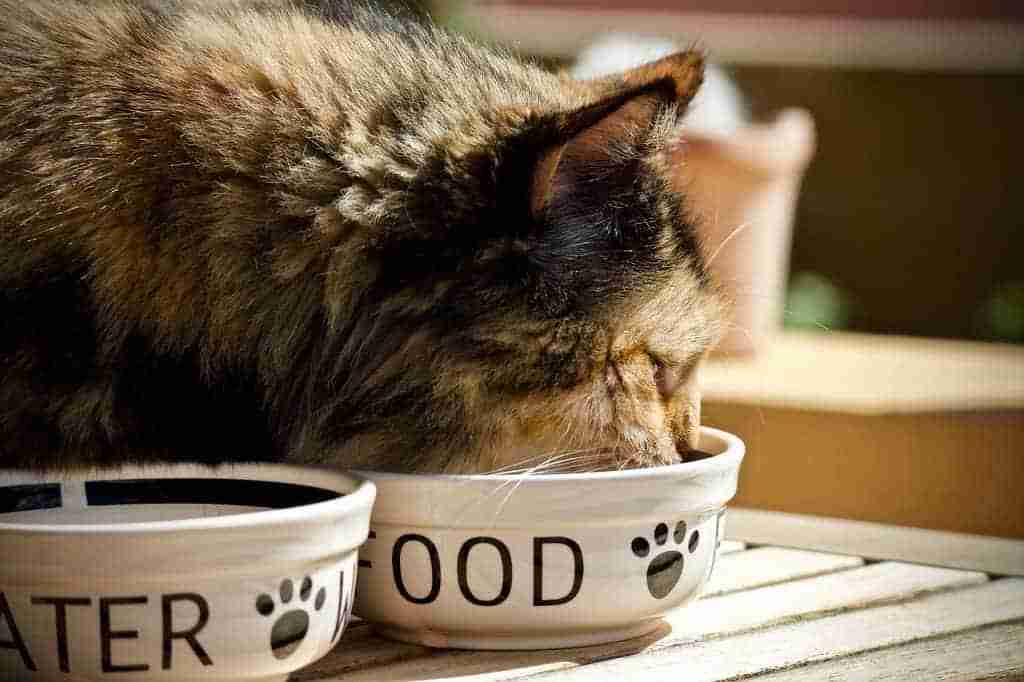
Parasites
Cats have a tendency to pick up parasites, particularly if they share a house with another cat or pet that goes outdoors or if they go outdoors themselves. Even indoor cats can get worms from eggs and larvae brought into the home on footwear! Outdoor cats can pick up worms from prey if they hunt, from the vegetation they brush against, or from scavenged foods.
Why would worms make a cat lose their appetite? Basically, the infestation grows in the stomach to such a point that they feel full and lose their appetite.
Hairballs/Foreign Body
Cats love to groom and this can lead to a hairball problem if they are indoor cats or longhaired cats. Indoor cats often seem to shed year-round whereas an outdoor cat will distinctly lose a winter coat in spring. This year-round volume of hair or extra volume from the length if they are longhaired, can create excessive hairball issues.
As with parasite issues, hairballs in the stomach can make a cat feel full and restrict appetite even if they are not eating.
Likewise, if your cat swallows a foreign object like some string during play, this can lead to blockages that can make your cat feel full even if they are not eating.
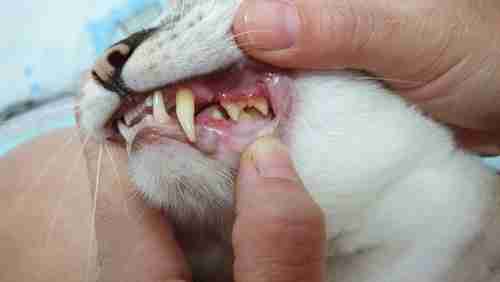
Dental Issues
Your cat might be hungry but if its mouth hurts it might not feel like eating.
Broken teeth, sore gums caused by gingivitis, cuts, and abrasion to the mouth area may make eating painful so your cat might just go off their food as a result.
Eating with bad teeth isn’t enjoyable, although cats don’t need to chew food so even losing teeth altogether won’t be the problem – it is the pain of unresolved dental issues that are likely to cause problems.
Respiratory Tract Infection
Minor infections in the breathing system or passing allergy reactions might cause your cat to feel a little bunged-up or get a runny nose. Often a loss of the senses of smell and taste accompanies these minor infections and irritations.
Smell and taste are deeply intertwined with appetite stimulation. If your cat has a minor wet nose they may not be able to smell or taste food and may not feel attracted to what you are putting down for them.
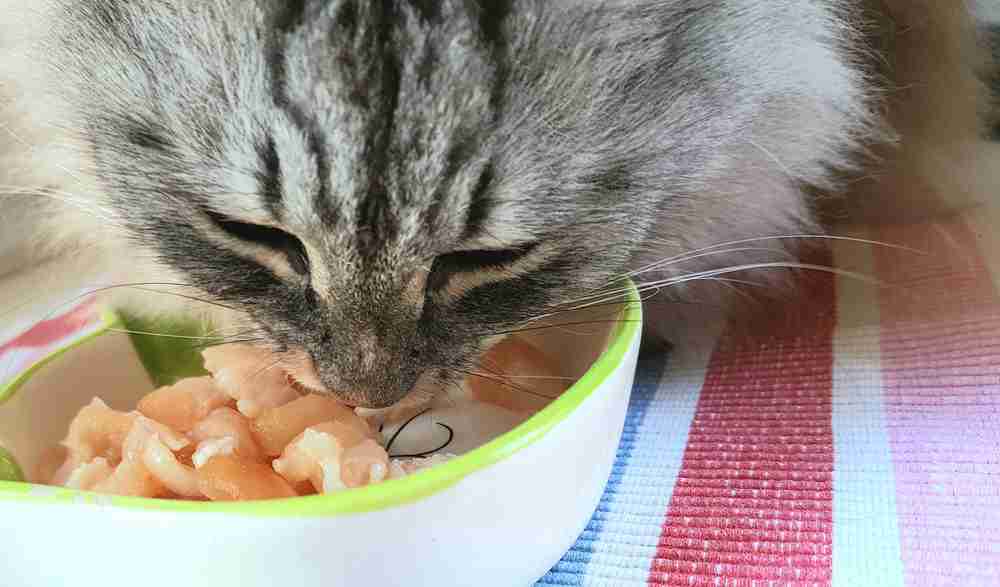
Digestive System Illness
Things may be a little more serious. Your cat may have a serious underlying issue that first manifests initially as a loss of appetite. Think cancers of the digestive system, pancreatitis, and kidney failure. Clearly, these are not as common as other causes of appetite loss – but they are a possibility!
Most of these serious issues take some time to fully develop and the loss of appetite can be an early warning – which is useful because the sooner you know there is a problem the quicker you can act to help your cat.
Food Spoilt
Your cat is in perfect health, there are no issues, fit as a fiddle – but the food is bad!
Most people who feed their cat wet food will probably store opened food in the refrigerator and ditch it pretty quickly after opening so spoiling of wet food is not so common and is easy to identify and rectify – but it does happen, even leaving wet food out for a few hours is likely to mean the food degrades.
Dry food, on the other hand, we all seem to think this stuff lasts forever! Because it is dry we assume it has a long shelf date, but this is not true. Most dry foods are bound together with fats and oils that can turn rancid pretty quickly.
When your cat has a sense of smell that is 16x more effective than yours they could be trying to tell you the food is off.
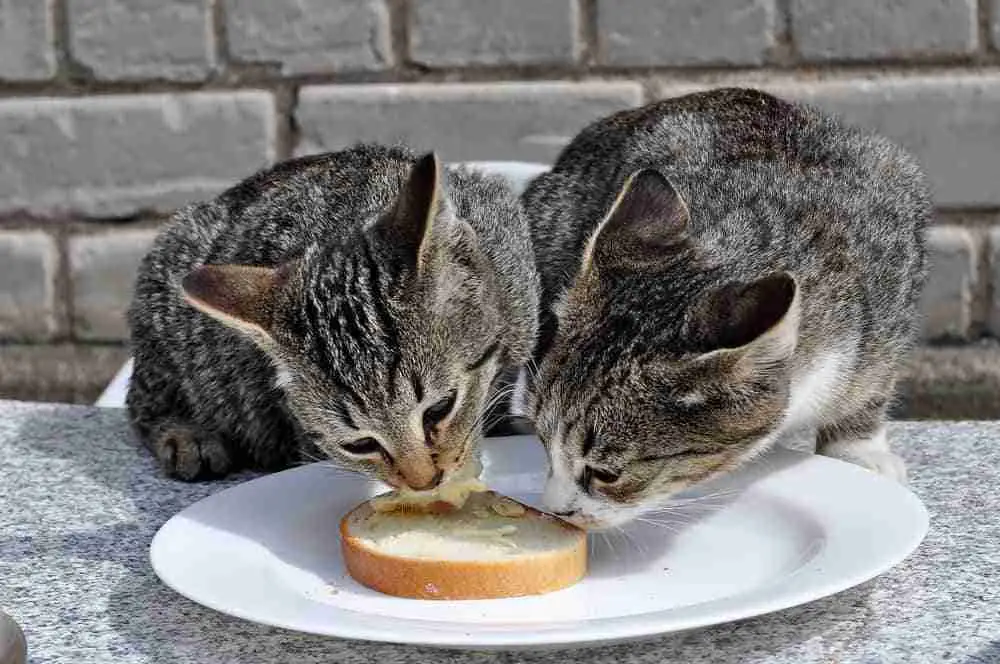
Change Of Recipe
Let’s be honest, pet food manufacturers are in the game to make a profit. So, if they find a way to make the same food, but cheaper, they will, and there is nothing wrong with that.
The problem is your cat may be able to detect the changes made and may decide standards have gone downhill and they don’t want to eat at that joint anymore!
Changes to the aroma or texture of their favorite food brought about by ingredient or recipe changes that can happen overnight without you knowing could be putting your cat off the food they used to love!
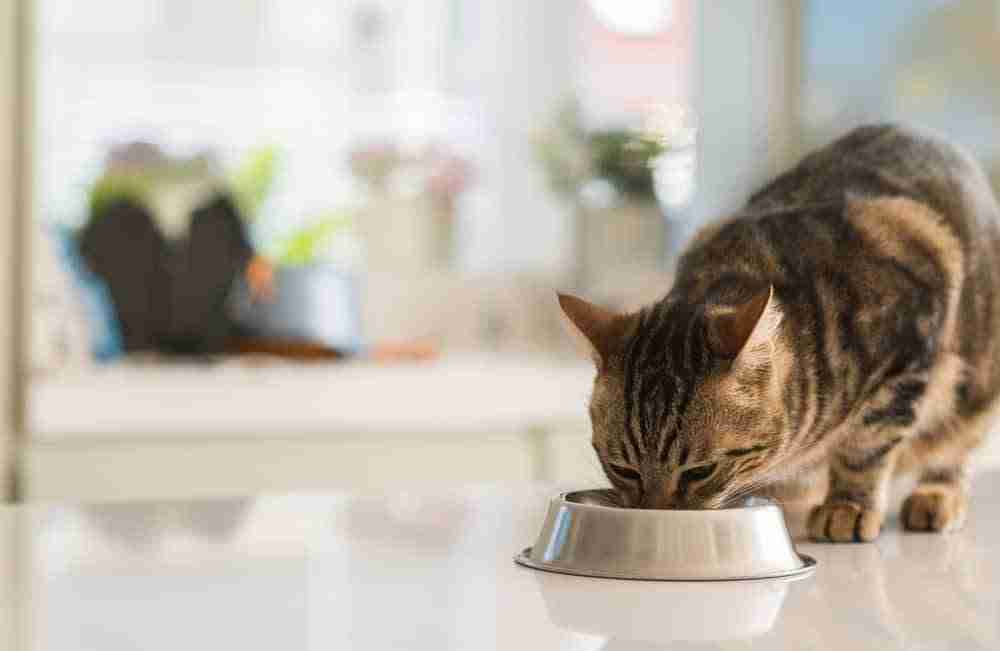
Wrong Temperature
This really applies to cats that are wet food eaters, but wet cat food at different temperatures tastes and smells different depending on the temperature. Cats can eat cold food but this study found that cat food at warmer body temperatures releases sulfur-containing compounds that make meats smell and taste meatier.
If you sometimes serve your cat a fresh helping off the shelf and then another helping that has been refrigerated your cat is going to find the food unappealing on occasion and really good on another.
Are you serving wet food at the right temperature for your cat?
Lack Of Cleanliness
Cats are very picky and given their super senses something as seemingly minor as a detergent smell or a bowl that isn’t freshly cleaned can put your cat off. Plastic bowls or cracked ceramic bowls tend to harbor odors that might be unnoticeable to you but could smell bad to your cat.
Enough even to put them off!
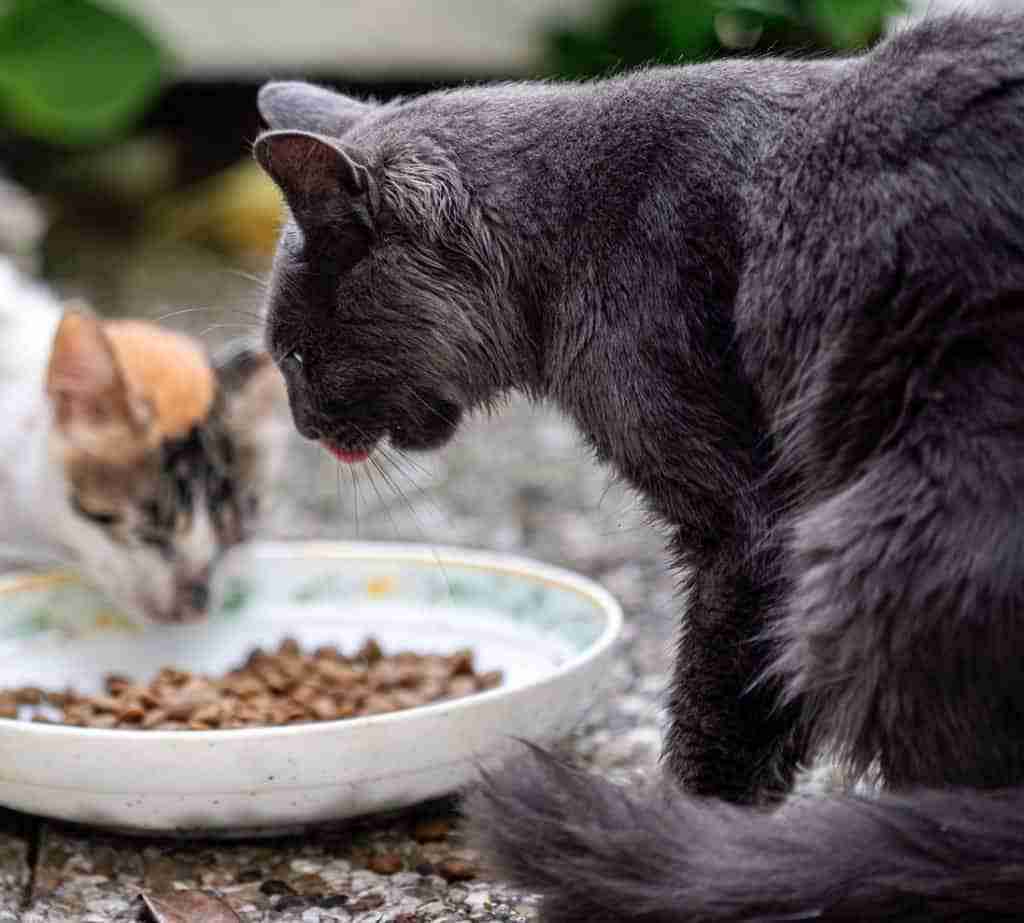
Grazing/Free Feeding
Has your cat really gone off food or are they eating elsewhere, grazing during the day, or getting treats that put them off their main meal?
They wouldn’t be the first outdoor cat to be fed by the neighbor or to hunt a snack on the move, all of which might put them off the food that you are offering.
Or are members of your household treating their cat to tidbits off their own plate or other treats? Do you treat your cat? All of these little extras could reduce your cat’s appetite.
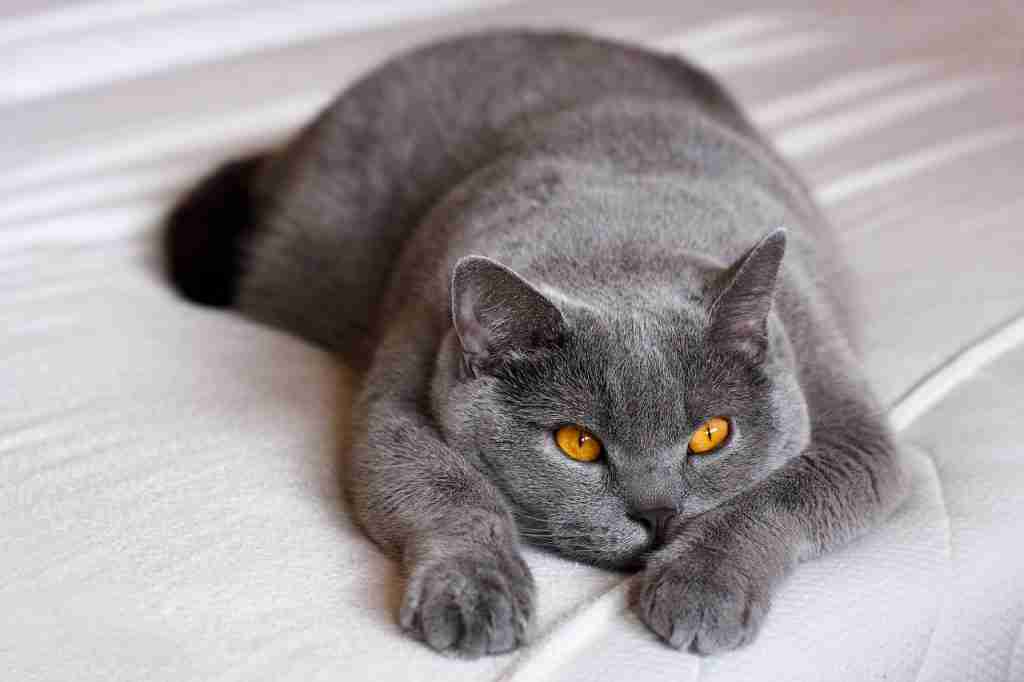
Inactive Lifestyle
If your cat is living the good life – sleeping all day, not moving much as they bask in the sun then they may not be building up the necessary appetite. Neither you nor your cat needs to eat much when you aren’t moving so much. Maybe your cat is not active enough to warrant eating the food you expect them to eat?
Age
Older cats can suffer from senility or the dulling of senses such as taste and smell. If your cat is getting senior moments then they may just not know what to do when it comes to eating. An old cat that is a picky eater may have a dulled sense of taste or smell that reduces its appetite.
Is your cat still a spring chicken – is age beginning to take its toll on our old friend?
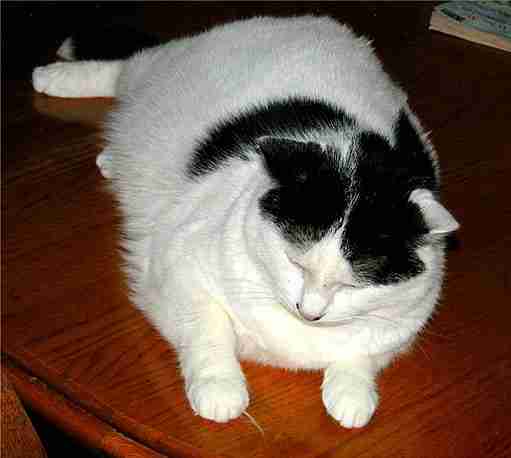
How Long Can A Cat Go Without Eating Before Its A Problem
If your cat has gone off their food is this a big problem or can it be ignored for a while? How long can a cat go without eating? Well, the answer to this depends on the build of your cat. If your cat is a healthy weight or on the skinny side they can last from 1-2 weeks without eating so long as they have water. If your cat is heavy or obese not eating can be a big problem and really they need to get eating within a day or two.
Why the difference? Well, when a cat stops eating they start to dip into their fat supplies to provide the energy to run their body. The problem is fatter cats release so much fat into their bloodstream they can damage their liver which processes the fat. They are more likely to suffer from hepatic lipidosis than thinner cats and so they are the cats that potentially have the biggest problem not eating!
The risk of hepatic lipidosis in large cats is so much greater that keeping your cat at a healthy weight can be a lifesaver if they get sick or go off their food or get locked in
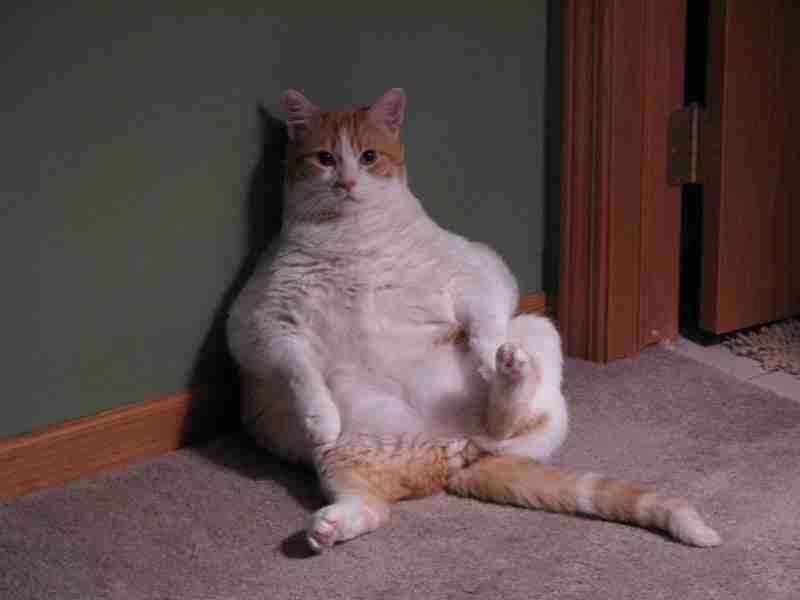
Will a cat starve themselves if they don’t like food – they could, but not knowingly. They tend to go off their food for one reason or another and then can succumb quickly to hepatosis if they are fat. They never meant for it to happen – their condition just predicated it. If they are the normal size they will generally look for other food sources and have time to supplement elsewhere rather than starve – they will most likely hunt more or start begging for their own food.
Quick Fixes To Get My Cat Eating
What can I do to get my cat to eat if they have gone off their food? Here are some handy tactics and quick fixes that can get your cat back on the right path:
Rule Out Health Issues
If this goes on for more than 24 hours get your cat to a vet for a full check-up. Your vet will be able to rule out all but the more serious issues very quickly and blood test results should confirm no issues with more serious complications like cancer, kidney, or other organ issues.
Worming and hairball treatment can be quick and cheap and foreign body blockages can usually be ruled out by x-ray and physical examination.
If Using Dry Food Change Out The Food
Take the precaution of changing dry food if that is what your cat eats normally. The pack may have been open too long or have absorbed odor and flavor from other sources making it unappetizing for your cat.
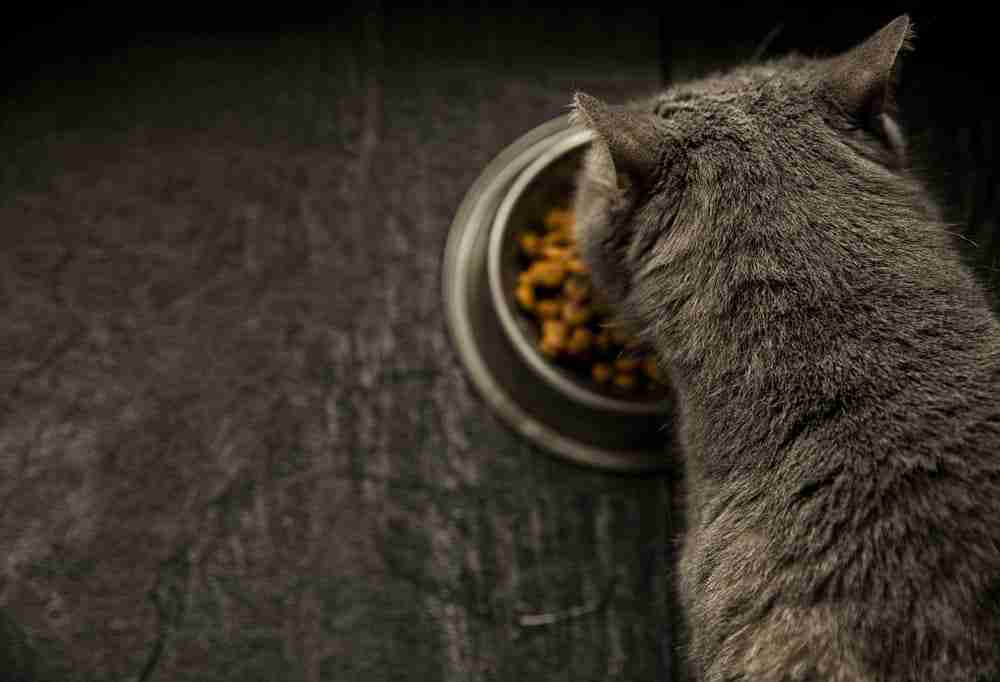
If Using Wet Food Serve Warm
If your cat eats wet food, consider heating the food if you don’t already. Try to avoid using the food directly from the refrigerator as this may be tasteless and odorless. Try to microwave or heat food in a bag in warm water before serving and see if that improves the situation.
If this has no effect consider changing out the wet food for a different brand or flavor – go for something with a strong fish flavor initially as cats seem unable to resist foods like tuna, sardines, or mackerel!
Clean The Food Bowls Before Each Meal – Avoid Detergents
If the cat’s food bowl is a little tired, consider replacing it with a new, stainless steel bowl. Cracked ceramics and scuffed plastics can all make a bowl stink bad to your cat!
Wash the bowl thoroughly before serving food in it. Avoid reusing a dirty bowl where possible and avoid using detergents with lemon scents as cats dislike citrus and your cat may be put off by the lingering detergent odor!
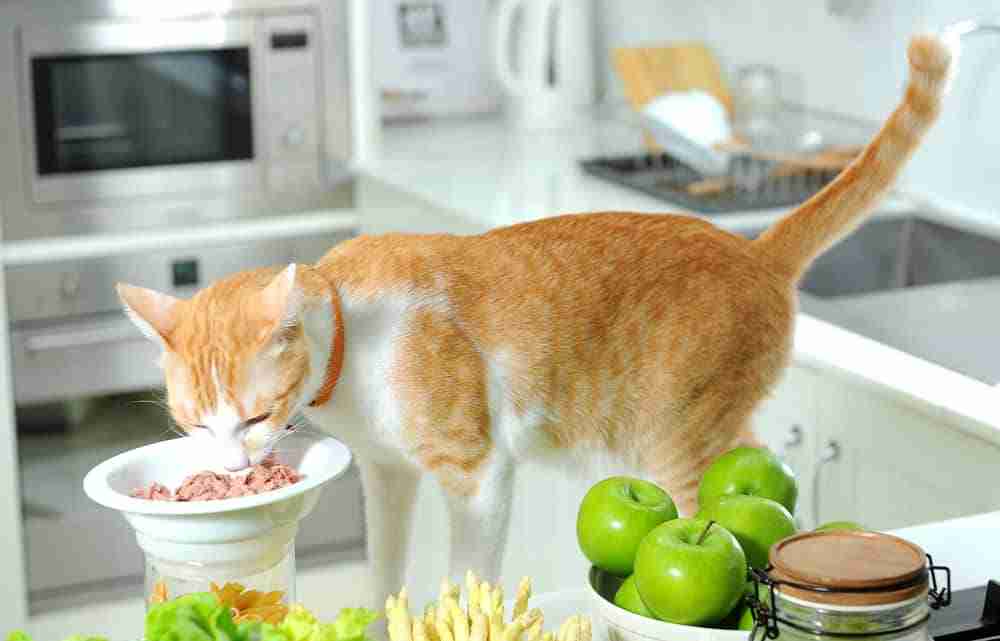
Use Treat Meals To Reignite Meal Time Interest
Try bribery if your cat is not eating! Most cats have some food they find irresistible – like tuna. Don’t be afraid to get your cat on track with the odd cheat meal! Alternatively, add tuna juice to their normal food and see if that tempts them.
Even a human food meal can be enough to re-ignite your cat’s appetite if they haven’t been eating for a while.
Move To Fixed Meal Times To Let Appetite Build Up
Use a fixed meal time and cut out treats and grazing opportunities so your cat has a genuine hunger by meal time. Sometimes if you avoid snacking and have no opportunity to eat until a meal time later, you are so hungry anything will do! Same for your cat…
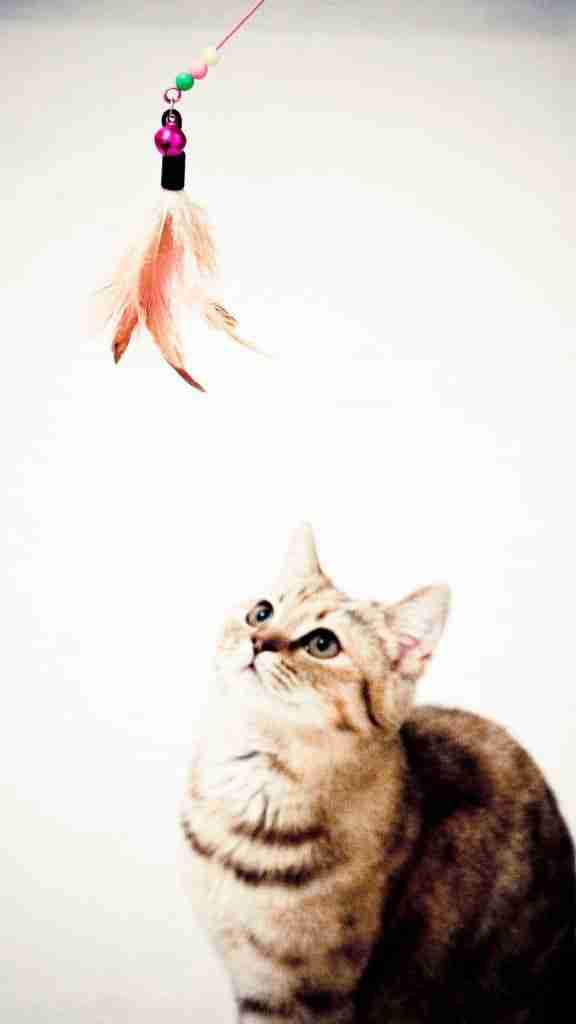
Instigate Play Before A Meal Time To Tap Into Instincts.
Tap into your cat’s natural instincts. Your cat follows an activity plan of hunting, killing, eating, grooming, and then sleeping. Use this to your advantage. Before a fixed meal time try to play with your cat to replicate the hunting phase. You want them to fully engage in stalking, pouncing, and killing those toys. Then present the food and see if the natural instinctive flow works in your favor to get your cat eating.
Final Thoughts
Cats go off their food for all sorts of reasons and it can be a serious problem if you can’t rectify the problem quickly. Most of the time the issue will be food-related rather than health-related – your cat will demonstrate hunger by licking the food or approaching the food but deciding against it. Health-related issues often mean your cat is just not remotely interested in the food on any level. If in doubt, get to a vet within 24-48 hours to rule out health issues. Then start looking to bribe your cat with warm wet food or their personal favorites!
